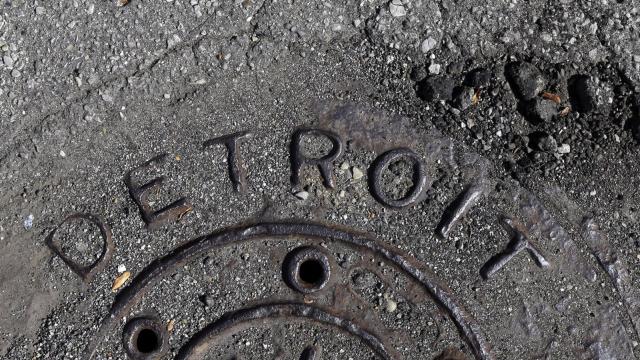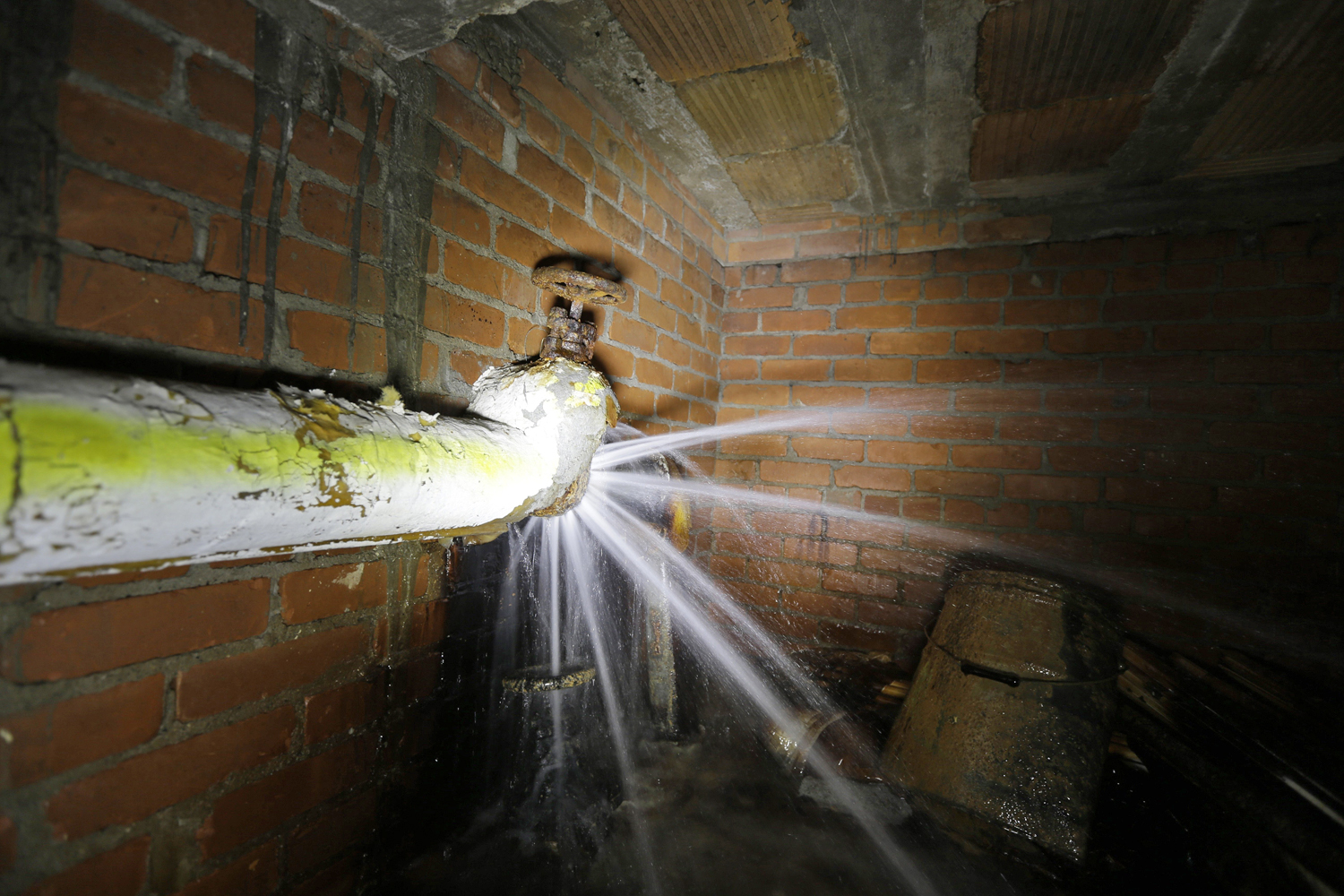
It is time for we the people to stand with Detroit. The work has already started. Detroit is rebuilding community from the grassroots up, and a few dedicated but under-staffed community organizations are working feverishly to grow a more sustainable, equitable and innovative Detroit than the one you hear about in the mainstream media.
They’re working for the most part under-the-radar and on local scale, building housing and worker cooperatives, urban farms, alternative recycling programs, public-private partnerships, and other amazing ideas that could only take root in a city as ingenuous and resilient as Detroit. These are Detroit’s Davids against Wall Street’s Goliaths, and they need our solidarity now.
The Situation
Today, 60% of Detroit children live in poverty and the infant mortality rate has surpassed Mexico’s. The city, under unelected emergency financial management from the state governor’s office, recently announced a plan to shut off up to 150,000 residential and commercial water accounts – almost 40% of the city – for non-payment. In some neighborhoods, more streetlights are broken or off than on, and there are more than 80,000 abandoned buildings citywide.
Meanwhile, Detroit’s municipal government and economy are still reeling from decades of disinvestment, deindustrialization, white flight, capital flight, and – yes – corruption that have sent former mayors to jail.
Simultaneously, City Hall is being crushed under the weight of an imposing and nationally-coordinated media and financial occupation by corporate America. Michigan’s Tea Party state governor, Rick Snyder, took control of Detroit and six other majority-black cities last year under a controversial “emergency manager” law. Shortly after Snyder appointed Kevyn Orr to run the city, Orr hired his own former corporate bankruptcy law firm to initiate bankruptcy proceedings while also paving the way for land sell-offs to preferred companies and developers as well as privatization of public utilities and services like ambulances and the water department.
Detroit’s retired city employees and pensioners are likely to pay a high price for the bankruptcy, while banks that engaged in dubious municipal credit rate swaps reclaim the majority of their failed loans and extract usurious interest rates on existing bad debt.
I Thought Detroit Already Got a Bailout in 2009?
Nope, the Big 3 auto companies – Ford, Chrysler, and General Motors – got bailed out under the Automotive Industry Finance Program. In return, their top executives sold their corporate jets, and then proceeded to slash health benefits, cut pensions and reduce payments to laid-off workers. The bailout wasn’t enough for Chrysler, which went bankrupt three months later.
It received an additional $6 billion check straight from the desk of U.S. Treasury Secretary Tim Geithner, in exchange for vague promises to become “more competitive” and build electric cars. In March of 2009, Treasury approved an additional $5 billion in loans to auto suppliers.
One thing is clear from the auto bailouts: they didn’t do a damn thing to help 99% of Detroit residents. In 2012, two years after the bailout, Detroit still had three times the national poverty rate and half the median income.
In fact, the median household income actually declined in the years after the auto bailout from $28,730 (2008) to $23,600 (2012), a full 18% drop. The auto bailout dollars didn’t enrich Detroit proper because for decades Detroit and the auto companies have been disjointed: very little of the wealth created by automobile sales actually stays in Detroit, but gets piped out to the wealthier suburbs or diffuses into the now-global network of financial centers and offshore tax havens.
And Americans as a whole didn’t benefit from the auto bailouts either, in tandem with how they haven’t benefited from the Wall Street bailouts. Five years later, the government has spent $80 billion propping up the car companies, but recovered only $54.6 billion of it by October, 2013. That leaves taxpayers on the hook for nearly $25 billion.
And the electric cars promised? Chrysler built them, and then Chrysler’s CEO told customers not to buy them because they weren’t profitable. Bailing out the auto companies to save Detroit turned out to be like paying the fox to guard the henhouse, and working Americans are the hens.
In an Ideal World
In a world of less dysfunctional politics, we wouldn’t even be having this conversation. A functional and compassionate government would have come to the aid of a once-great American city now teetering on the brink of financial collapse and experiencing a full-blown humanitarian disaster.
If the disaster that has befallen Detroit and countless other rustbelt cities had occurred overnight like a hurricane or a tornado, FEMA – the real domestic “emergency managers” – and Red Cross volunteers would be on every corner distributing emergency aid. An army of social workers would descend on the neighborhoods to provided vital services. A New Deal-style emergency jobs program would put thousands of Detroiters to work repairing or demolishing blighted buildings and infrastructure
If the disaster of Detroit had happened in Ukraine, or Israel, or Afghanistan, or Egypt, or any of the dozens of countries around the world where the U.S. government spends over $37 billion annually on foreign aid, U.S. peacekeeping forces would be working side-by-side with local leaders to build schools and hospitals.
U.N. Human Rights Observers would be on the ground to ensure the human right of access to clean drinking water. President Obama would stand proudly with Detroit Mayor Mike Duggan posing for pictures in front of the Spirit of Detroit sculpture announcing a peace treaty to ensure an end to the violent water shutoffs and evictions.
The Cavalry Isn’t Coming – So We Must
In reality, none of this is going to happen if it doesn’t suit the interests of the large banks and corporations that showed us clearly in 2008 how they have our elected government fully co-opted to serve their bottom lines. To corporate America, Detroit is just a bunch of deadbeat debtors who haven’t paid their bills, not a humanitarian disaster zone.
To them, a bailout for Detroit is a bailout of their own coffers; payback on their own soured gambles.
For the rest of us, though, it’s time to help Detroit. If you care about second chances, about life after poverty and unemployment, you are needed in Detroit to build the better world we talked about in 1,000 parks across this country in the fall of 2011.
Are you ready to start bailing out Detroit the right way? It starts with water, the basic element of life. Join the Detroit Water Brigade and help us start getting water and vital information to Detroiters in need. If we can, we’ll raise the money to buy off the $150 debts of Detroit families to keep the city from shutting off their water – Strike Debt style. If we raise enough money, maybe we can even buy this debt in bulk and bring hope and second chances to some of America’s most-neglected citizens.
Once we get going, who knows where we’ll stop? Rebuild the water and energy systems with renewable technologies and designate them a public commons for all. End all evictions. Turn abandoned lots into urban farms. Rebuild schools. End payday lending and expand crowd funding of local small and cooperative businesses. The sky is the limit.
The bailout isn’t coming from above, people. Let’s do this ourselves.
3 WAYS TO SHOW YOUR SUPPORT
- Log in to post comments












